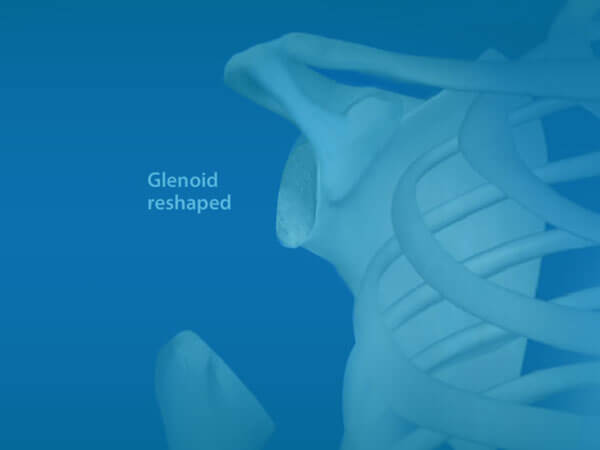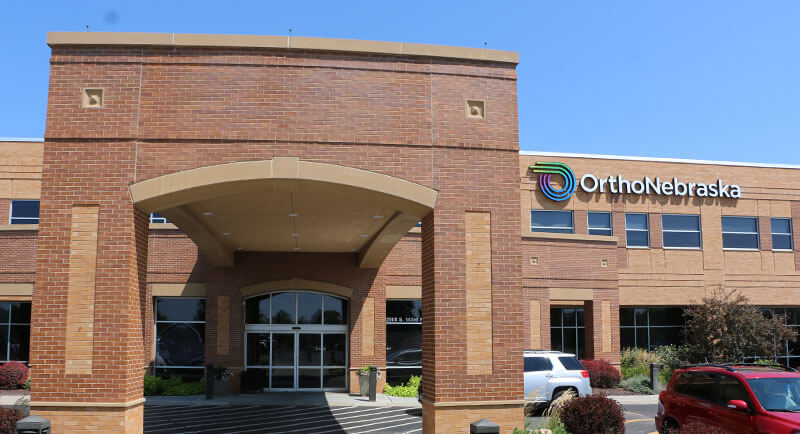What is a Shoulder Replacement?
A shoulder replacement is a surgical procedure where a surgeon replaces the damaged parts of the shoulder joint. The ball at the top of the arm bone is replaced with a metal one, and the socket is replaced with a plastic component. This helps relieve pain and restore movement.
Who should have a Shoulder Replacement?
Potential candidates for shoulder replacement surgery often suffer from:
- Loss of motion or strength in the shoulder
- Severe pain that limits everyday activities
- Moderate to severe pain while sleeping
If non-surgical treatments, like physical therapy, anti-inflammatory medicines and cortisone injections have not relieved this pain or immediate and long-lasting relief is sought, OrthoNebraska may recommend surgery.
While a conventional shoulder replacement works for most patients, there are some cases that require a reverse shoulder replacement. Some common causes for a reverse shoulder replacement include:
- Large or complete rotator cuff tears
- Previously unsuccessful shoulder replacement
- Severe shoulder pain that prevents raising the arm away from the side
Does a Shoulder Replacement work?
Shoulder replacement is nearly always successful at achieving the main goal of relieving the pain associated with shoulder movement. It is an open surgery and has the same risks as all open surgeries, which your surgeon will discuss with you. OrthoNebraska has a lower than average infection rate and excellent outcomes relative to other hospitals.
OrthoNebraska has surgeons that perform this procedure at least once per week, meaning their expertise is likely to provide you with the best possible outcome.
What can I expect when I have a Shoulder Replacement?
You may need a pre-surgical physical to make any necessary accommodations based on your health history. When you arrive at the hospital, you’ll speak to your surgeon and anesthesiologist. You will likely be under general anesthesia (fully asleep) for this procedure. You will typically stay overnight in the hospital for 1-2 days.
After surgery, you’ll need assistance at first with daily tasks like cooking, cleaning, driving and bathing. You can return to most normal activities when you are off the pain medicines, typically one to two weeks. Your stitches or staples will be removed at a follow-up appointment after about two weeks. You will be required to wear a sling for two to four weeks. It’s crucial to view to your shoulder replacement education once you are scheduled for surgery (available here) and follow your at-home exercises and physical therapy plan.
Full recovery – being totally pain-free and with full range of motion – takes about six months, but for some patients, it can be closer to a year.












